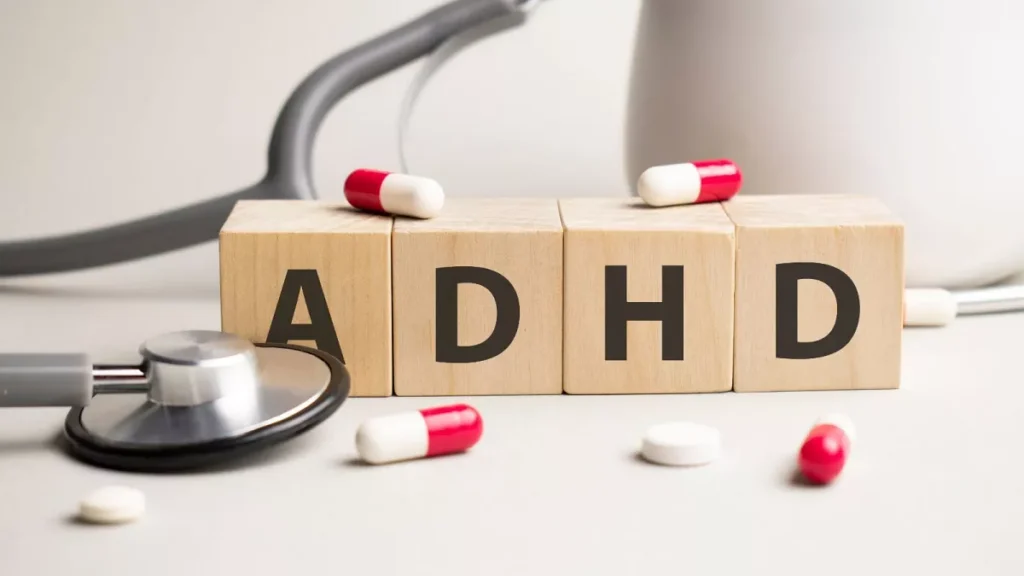Resilience, the ability to adapt and thrive despite adversity, is a critical trait for everyone. However, for individuals with Attention-Deficit/Hyperactivity Disorder (ADHD), resilience takes on an even more significant role. ADHD presents unique challenges, such as difficulties with focus, impulse control, and emotional regulation, which can lead to increased stress, frustration, and setbacks. Developing resilience allows individuals with ADHD to navigate these challenges more effectively and build a fulfilling, successful life. This article explores the concept of resilience in the context of ADHD and offers strategies for building and strengthening this essential trait.
Understanding Resilience in ADHD
Resilience is not an innate trait that one either has or doesn’t have; it is a set of skills and attitudes that can be developed over time. For individuals with ADHD, resilience involves:
Adapting to Challenges:
ADHD often involves facing numerous challenges in daily life, from managing time and tasks to coping with emotional ups and downs. Resilience helps individuals adapt to these challenges, finding ways to manage and overcome them.
Bouncing Back from Setbacks:
Setbacks are common for individuals with ADHD symptoms, whether in academic, professional, or personal contexts. Resilience involves the ability to bounce back from these setbacks, learn from them, and move forward.
Maintaining a Positive Outlook:
ADHD can sometimes lead to feelings of frustration, inadequacy, or low self-esteem. Resilience helps individuals maintain a positive outlook, focusing on strengths and potential rather than dwelling on limitations.
Seeking Support:
Building resilience also involves recognizing the importance of seeking support from others, whether through friends, family, therapists, or support groups. A strong support system can provide encouragement and resources during challenging times.
Strategies for Building Resilience in ADHD
1. Develop Self-Awareness
Self-awareness is the foundation of resilience. Understanding how ADHD affects your thoughts, emotions, and behaviors is crucial for developing strategies to cope with challenges:
Identify Triggers:
Recognize situations, environments, or activities that trigger stress, frustration, or impulsive behaviors. Understanding your triggers allows you to anticipate challenges and develop proactive strategies.
Reflect on Past Experiences:
Reflect on past challenges and how you responded to them. Consider what worked well and what didn’t, and use these insights to improve your coping strategies.
Understand Your Strengths and Weaknesses:
Take time to identify your strengths and weaknesses. Leveraging your strengths while working on areas of improvement can boost confidence and resilience.
2. Cultivate a Growth Mindset
A growth mindset—the belief that abilities and intelligence can be developed through effort and learning—is essential for resilience:
Embrace Challenges as Opportunities:
View challenges as opportunities for growth rather than obstacles. Adopting this mindset encourages persistence and a willingness to learn from mistakes.
Focus on Effort, Not Just Results:
Recognize that effort and persistence are key components of success. Celebrate your efforts and progress, even if the results are not immediately apparent.
Learn from Failure:
Rather than viewing failure as a reflection of your abilities, see it as a learning opportunity. Analyze what went wrong, and use that knowledge to improve in the future.
3. Practice Emotional Regulation
Emotional regulation—the ability to manage and respond to emotional experiences in a healthy way—is a critical aspect of resilience:
Mindfulness and Meditation:
Practice mindfulness techniques, such as deep breathing or meditation, to help manage stress and stay grounded. These practices can improve emotional awareness and regulation.
Cognitive Behavioral Techniques:
Use cognitive behavioral techniques to challenge and reframe negative thoughts. For example, if you’re feeling overwhelmed, identify the thought patterns contributing to that feeling and replace them with more constructive perspectives.
Healthy Coping Strategies:
Develop healthy coping strategies for managing difficult emotions, such as talking to a trusted friend, engaging in physical activity, or practicing relaxation techniques.
4. Build Strong Social Connections
Social support is a key factor in resilience. Building and maintaining strong social connections can provide emotional support, encouragement, and practical help during challenging times:
Seek Out Positive Relationships:
Surround yourself with supportive, understanding individuals who can offer encouragement and advice. Positive relationships can provide a sense of belonging and reduce feelings of isolation.
Join Support Groups:
Consider joining support groups for individuals with ADHD. These groups offer a space to share experiences, gain insights, and connect with others who face similar challenges.
Communicate Effectively:
Practice effective communication skills, such as active listening and assertiveness. These skills can help in building stronger relationships and resolving conflicts constructively.
5. Set Realistic Goals
Setting realistic, achievable goals is an important part of building resilience. Goals provide direction and motivation, helping you stay focused and engaged:
Break Down Goals into Manageable Steps:
Large goals can be overwhelming, especially for individuals with ADHD. Break down your goals into smaller, manageable steps, and focus on one step at a time.
Use SMART Goals:
Set SMART (Specific, Measurable, Achievable, Relevant, Time-bound) goals. This framework helps in creating clear, actionable goals that are easier to track and achieve.
Celebrate Small Wins:
Recognize and celebrate small achievements along the way. Celebrating progress, no matter how small, boosts motivation and reinforces positive behaviors.
6. Develop Problem-Solving Skills
Effective problem-solving skills are essential for resilience. The ability to navigate challenges and find solutions is crucial for overcoming obstacles:
Use a Structured Approach:
Approach problems systematically by identifying the issue, brainstorming potential solutions, evaluating options, and implementing the best solution. A structured approach reduces anxiety and increases confidence.
Practice Flexibility:
Be open to trying different approaches if your initial solution doesn’t work. Flexibility and adaptability are key components of effective problem-solving.
Learn from Experience:
Reflect on past problem-solving experiences to identify what strategies worked and what didn’t. Use this knowledge to improve your approach in future situations.
7. Prioritize Self-Care
Taking care of your physical and mental health is essential for building and maintaining resilience:
Maintain a Healthy Lifestyle:
Prioritize regular physical activity, a balanced diet, and adequate sleep. A healthy lifestyle supports overall well-being and reduces the impact of stress.
Engage in Relaxation Activities:
Incorporate relaxation activities into your routine, such as reading, listening to music, or spending time in nature. These activities help reduce stress and recharge your energy.
Practice Self-Compassion:
Treat yourself with kindness and understanding, especially during challenging times. Self-compassion involves acknowledging your struggles without judgment and recognizing that everyone experiences difficulties.
8. Seek Professional Support
Sometimes, building resilience may require the support of a professional, such as a therapist or coach:
Cognitive Behavioral Therapy (CBT):
CBT is an evidence-based approach that can help individuals with ADHD develop resilience by addressing negative thought patterns and behaviors. A therapist can guide you through CBT techniques to improve emotional regulation and coping skills.
ADHD Coaching:
Working with an ADHD coach can provide personalized support and strategies for managing the challenges associated with ADHD. A coach can help you set goals, develop organizational skills, and build resilience.
Mindfulness-Based Stress Reduction (MBSR):
MBSR is a program that combines mindfulness practices with stress reduction techniques. It can be particularly helpful for individuals with ADHD in managing stress and building resilience.
9. Embrace Flexibility and Adaptability
Flexibility and adaptability are key components of resilience. Being open to change and willing to adjust your approach can help you navigate the uncertainties of life:
Practice Accepting Change:
Understand that change is a natural part of life. Practice accepting change rather than resisting it, and focus on how you can adapt to new situations.
Develop Contingency Plans:
Prepare for potential setbacks by developing contingency plans. Having a backup plan can reduce anxiety and increase confidence in handling unexpected challenges.
Learn to Let Go:
Recognize when it’s time to let go of strategies or goals that are no longer serving you. Letting go can open up new opportunities and pathways for growth.
10. Maintain a Sense of Purpose
A strong sense of purpose can provide motivation and direction, even in the face of challenges:
Identify Your Core Values:
Reflect on your core values and what is most important to you. Align your goals and actions with these values to create a sense of purpose and fulfillment.
Pursue Meaningful Activities:
Engage in activities that bring you joy and fulfillment. Whether it’s a hobby, volunteer work, or a career, meaningful activities contribute to a sense of purpose and resilience.
Stay Connected to Your Goals:
Regularly revisit your goals and aspirations. Staying connected to your long-term vision can provide motivation and help you persevere through challenges.
Conclusion
Building resilience is a lifelong process that involves developing self-awareness, cultivating a growth mindset, practicing emotional regulation, building strong social connections, setting realistic goals, developing problem-solving skills, prioritizing self-care, seeking professional support, embracing flexibility, and maintaining a sense of purpose. For individuals with ADHD, resilience is particularly important in navigating the unique challenges they face in daily life.
Resilience doesn’t mean that you won’t experience difficulties or setbacks, but it does mean that you can face these challenges with confidence, adaptability, and strength. By implementing the strategies outlined in this article, individuals with ADHD can build and strengthen their resilience, leading to greater success, fulfillment, and well-being.







More Stories
The Future of Hair Restoration:
The Importance of Mental Health Practices
“Top Dermatologists for Butt Fillers in Dubai”